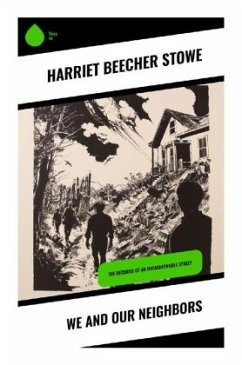In "We and Our Neighbors," Harriet Beecher Stowe presents a poignant narrative that intricately weaves together the lives and struggles of various characters, reflecting the social tensions surrounding abolition and the complexity of human relationships in 19th-century America. Stowe's literary style is marked by her keen use of dialogue, rich character development, and a backdrop that captures the moral dilemmas of her time. This novel serves not only as a work of fiction but as a social commentary on the issues of race, community, and empathy, resonating with the era's burgeoning reform movements. Harriet Beecher Stowe, an influential abolitionist and author, is best known for her groundbreaking work "Uncle Tom's Cabin," which galvanized the anti-slavery movement. Stowe's personal experiences, including her upbringing in a prominent anti-slavery family and her deep engagement with social reform, profoundly shaped her narrative voice. "We and Our Neighbors" further exemplifies her commitment to humanitarian causes and reflects her intricate understanding of societal dynamics, fueled by her passionate advocacy for social justice. For readers interested in the powerful interplay of narrative and social consciousness, "We and Our Neighbors" is a compelling exploration of community and compassion amidst a time of great societal upheaval. Stowe's insights remain relevant, inviting contemporary audiences to reflect on issues of inclusivity and moral responsibility in their own communities.
Bitte wählen Sie Ihr Anliegen aus.
Rechnungen
Retourenschein anfordern
Bestellstatus
Storno








